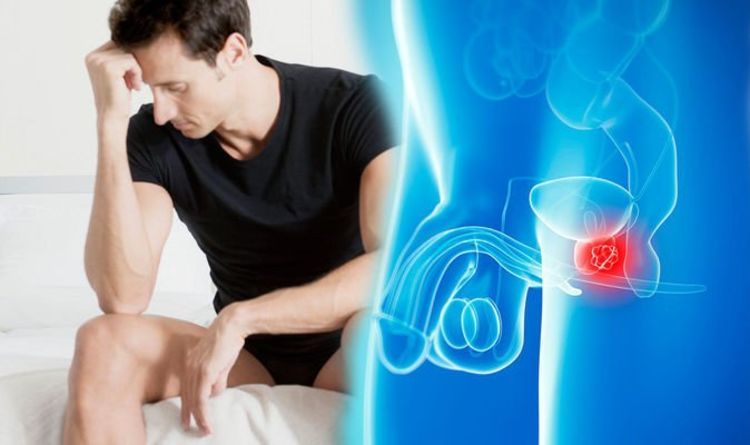Prostate cancer is the most common in men. It is also the third in mortality, behind lung and colorectal cancer. The positive is that the survival rate is high: it is estimated that it amounts to 90%. That is why prevention and early diagnosis are very important.
But there is an essential issue that usually occurs when a man suffers from this type of cancer that is usually irrelevant for many oncologists, not so for those who suffer it: erectile dysfunction.
WHAT IS PROSTATE CANCER?
The prostate is a gland of the male reproductive system, located below the bladder and in front of the rectum. It is about the size of a walnut and surrounds part of the urethra (the tube that carries urine out from the bladder). It is in charge of the production of semen.
The prostate cancer occurs when cells of the body begin to grow out of control. Although there are different types of prostate cancers, the most common is adenocarcinoma. It develops mainly in elderly men: 90% of cases appear in those over 65 years of age. Prostate cancer should not be confused with benign prostatic hyperplasia, which is a non-cancerous enlargement of the prostate, and occurs as men age, when the prostate can enlarge and block the urethra or bladder, which can lead to difficulties urinating or interfering with sexual function.
Although the causes of prostate cancer are unknown, there are risk factors such as advanced age, genetics, family history, obesity, smoking, and high testosterone levels that could increase your risk.
At first, prostate cancer does not present obvious symptoms, but in more advanced stages some usually appear, such as the frequent need to urinate (with a sensation of not emptying the bladder well), involuntary loss of urine, pain and itching at the time urination, difficulty starting to urinate, and urinary retention if the urethra becomes obstructed by the tumor.
HOW CAN IT AFFECT MY SEX LIFE?
Once prostate cancer is diagnosed through a digital rectal examination, a PSA ( prostate specific antigen) test – a protein that is produced in the prostate and is increased in various diseases – and a biopsy of the prostate tissues, Urologist in Delhi will recommend the treatments to follow.
What you need to know is that prostate cancer treatments, such as surgery, radiation therapy, chemotherapy, and hormonal therapy (use of drugs that lower or neutralize hormones) can cause side effects on your sexual function. Although these are not necessarily the only culprits: anxiety and depression can also contribute negatively.
The most common (and most feared) sexual problem in patients with prostate cancer is erectile dysfunction, which is the inability to get or maintain an erection to maintain a satisfactory sexual relationship, but there are others such as difficulty ejaculating, retrograde ejaculation (ejaculating “inward”) or urinary incontinence during sexual intercourse.
In the case of surgery, if when the prostate is removed (radical prostatectomy), the nerves near this gland, which control blood flow to the penis, are damaged, erectile dysfunction could appear. Currently, laparoscopic and robotic surgery have reduced this problem, although it is estimated that there is a greater than 60% chance of postoperative erectile dysfunction.
If you have radiation therapy, you may also have erection problems. The higher the radiation dose and the larger the irradiated area, the more likely you are to suffer them. Radiation damages the arteries that supply blood to the penis.
In the case of chemotherapy, you will most likely maintain your normal ability to erect. However, you may experience problems after receiving a session, although you will recover quickly. Sometimes chemotherapy can affect sexual desire and erection ability by slowing testosterone production.
CAN ERECTILE FUNCTION BE RESTORED?
It will depend on several factors such as the type of treatment, the age of the patient and the erectile function before the cancer. Generally, the recovery time is around 18 to 24 months.
The main treatment to regain erections aims to improve blood flow to the penis. Although also a psychological therapy can help. Anxiety and stress can be the most damaging elements when it comes to an erection. Some of the treatments are:
- Medications: These tend to be effective in most men. They are drugs that improve blood flow to the penis. However, they are not effective if the prostate nerves were not preserved after surgery.
- Injection into the penis: It is a very effective treatment that works within a few minutes of its administration. It can cause pain in the penis and a prolonged erection.
- Vacuum device: It is effective in 66-71% of patients, but can cause numbness or bruising. It is a plastic tube that is placed over the penis, a manual pump, and a band that is placed around the base of the penis once it is erect (a constriction ring).
- Penile prosthesis: Its establishment requires surgery and consists of 2 cylinders that are introduced into the corpora cavernosa of the penis and by placing a device inside the scrotum (between the testicles), the patient can cause an erection at his discretion.

